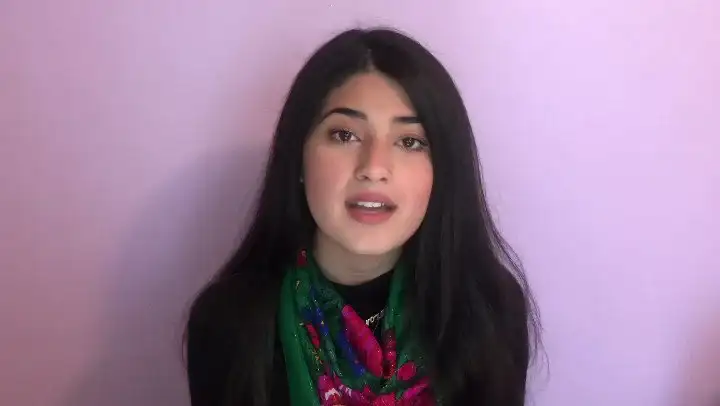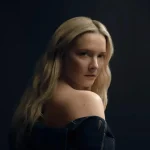What started as a simple eyelash curling video became one of the most powerful acts of digital resistance in modern history. Feroza Aziz, an Afghan-American human rights activist from New Jersey, transformed TikTok activism forever when she used a beauty tutorial to circumvent censorship and expose China’s treatment of Uyghur Muslims to millions worldwide.
In November 2019, this then-17-year-old high school student proved that one creative voice could challenge authoritarian censorship and spark global conversations about human rights. Known on TikTok as @ferozaaziz, her story reveals how young activists are reshaping digital advocacy and confronting powerful corporations about their content policies.
Who Is Feroza Aziz? The Activist Behind the Viral Video
Feroza Aziz is an American human rights activist who gained international recognition for her innovative approach to digital activism. Known globally as the “TikTok Uyghur activist,” she currently attends Rutgers University-Camden as a senior in the Honors College, pursuing a career in law while continuing her civic engagement work.
Born to Afghan immigrant parents, Aziz grew up experiencing the challenges faced by Muslim Americans in post-9/11 America. Her early exposure to discrimination shaped her commitment to human rights advocacy, particularly for marginalized Muslim communities worldwide.
Essential Facts About Feroza Aziz
| Attribute | Details |
|---|---|
| Full Name | Feroza Aziz |
| Age During Viral Moment | 17 years old (November 2019) |
| Nationality | American |
| Ethnicity | Afghan-American |
| Current Location | New Jersey, United States |
| Education | Senior, Rutgers University-Camden (Honors College) |
| Career Goal | Law |
| Primary Role | Human Rights Activist |
| Global Recognition | TikTok Uyghur activist |
| Viral Video Date | November 23, 2019 |
| Platform | TikTok (@ferozaaziz), Instagram (@ferozaaziz) |
| Documentary Feature | “TikTok Boom” (Sundance 2022) |
Growing Up Afghan-American: The Foundation of Her Activism
Feroza Aziz’s identity as the daughter of Afghan immigrant parents fundamentally shaped her approach to human rights advocacy. Born and raised in New Jersey, she experienced firsthand the challenges and discrimination faced by Muslim Americans in the post-9/11 era.
Her parents’ journey from Afghanistan to the United States provided her with a deep understanding of refugee experiences and the struggles of marginalized communities. This background became central to her motivation for speaking out against injustice worldwide.
Growing up as a Muslim teenager in New Jersey, Aziz faced daily encounters with racism and stereotypes. She has described being told to “go marry a terrorist” and “go marry bin Laden” as routine experiences that shaped her understanding of discrimination. These encounters with prejudice, combined with her Afghan heritage, created a strong foundation for her later human rights work.
As she explained to BuzzFeed: “As a Muslim girl, I’ve always been oppressed and seen my people be oppressed, and always I’ve been into human rights.” Her early content on social media focused on humorous videos targeted at Muslim-American audiences, using comedy as a way to cope with the racism she experienced.
How Did a Simple Eyelash Tutorial Become Global News?
The Strategic Deception That Fooled Algorithms
On November 23, 2019, Aziz posted what appeared to be a standard beauty tutorial on TikTok. The eyelash curler video began with typical makeup advice before abruptly shifting to expose human rights violations in China’s Xinjiang region.
“Hi guys, I’m going to teach you guys how to get long lashes,” she began, demonstrating with her eyelash curler, as documented in her viral TikTok post. “The first thing you need to do is grab your lash curler, curl your lashes obviously, then you’re going to put them down and use your phone that you’re using right now to search up what’s happening in China.”
She then detailed allegations of mass detention, forced conversions, and abuse of Uyghur Muslims in what she called “concentration camps,” before seamlessly returning to beauty tips. The video’s global reach extended far beyond TikTok, with versions being shared millions of times across Instagram, Facebook, and Twitter, demonstrating the international scope of its impact.
Why the Disguised Political Commentary Technique Worked
Aziz chose this disguised political commentary technique for two calculated reasons. First, she recognized that typical social media users prioritized entertainment over serious political content. “People don’t care at all that this is happening. All they care about is what the trend is,” she told Rolling Stone.
Second, she was actively trying to evade TikTok’s content moderation systems. Previous posts about Muslim persecution had been removed without explanation, leading her to conclude that political content critical of China was being censored on the ByteDance-owned platform.
The Unprecedented Viral Spread
The video exploded across multiple platforms, reaching over 1.5 million views on TikTok and millions more on Twitter, Instagram, and Facebook. This viral makeup video became one of the most effective pieces of human rights advocacy in social media history.
Comments sections filled with questions about how viewers could help the Uyghur community, demonstrating the video’s success in converting casual entertainment seekers into human rights advocates.
What Happened During the ByteDance Platform Censorship Controversy?
The Suspicious Account Suspension
Two days after her video went viral, Aziz discovered her TikTok account had been suspended. The timing raised immediate questions about whether the Chinese-owned company was censoring content critical of China’s government policies.
“I woke up Monday morning to see that my account was suspended and I thought that was really suspicious and strange that a Chinese-owned app suspending my account after talking about the Uyghur situation,” she told VOA News.
TikTok’s Complex Explanation
TikTok’s response revealed the complexity of their content moderation systems. The company claimed Aziz’s suspension resulted from a previous account violation involving “a video of Osama bin Laden, which is a violation of TikTok’s ban on content that includes imagery related to terrorist organizations.”
The referenced video, Aziz later explained to The Washington Post, was a satirical response to racist comments she regularly received. It featured bin Laden’s image for less than a second as a punchline in a dating-themed joke video designed to cope with being told to “go marry a terrorist” on a daily basis. “As Muslims, we’re ridiculed every day, so that was me making a joke to cope with the racism we face on a daily basis,” she explained to the Post.
More controversially, TikTok had implemented a “device ban” that prevented Aziz from accessing any account from her phone, not just the account with the violation. This practice raised additional questions about the platform’s censorship policies.
The Global Response and Corporate Accountability
International media coverage intensified pressure on TikTok to explain their actions. Major outlets including the BBC, CNN, and The Guardian covered the controversy, amplifying discussions about platform censorship and corporate responsibility.
Eric Han, TikTok’s head of safety, eventually issued a public apology, admitting to a “human moderation error” and reinstating Aziz’s account. However, Aziz rejected the explanation, tweeting: “Do I believe they took it away because of a unrelated satirical video that was deleted on a previous deleted account of mine? Right after I finished posting a 3 part video about the Uyghurs? No.”
How Has Feroza Aziz’s Activism Evolved Since 2019?
Expanding Global Human Rights Focus
Following her viral moment, Aziz broadened her activism beyond Uyghur rights. She has used her platform to address human rights violations in Kashmir, Afghanistan, Colombia, Venezuela, and US immigration policies, as she detailed in her interview with the BBC.
In 2020, she created another disguised political video addressing India’s Citizenship Amendment Act, as reported by SheThePeople, saying: “To exclude such a vast number of people based solely on their religion is wrong and immoral.”
Academic Pursuits and Civic Engagement
Now in her senior year at Rutgers University-Camden, Aziz has channeled her activism into formal civic engagement work. She leads a “Comic Relief” book drive supporting The Free Books Project, a Camden-based community initiative that has distributed over 250,000 books to improve literacy rates in underserved communities.
The Free Books Project operates throughout Camden, providing free books to residents who struggle financially, particularly targeting areas with historically low literacy rates. Her faculty advisor noted that “Feroza’s graphic-novel drive impacts and benefits the Camden community and our students, because she raised the profile of The Free Book Project among Rutgers–Camden students.”
Documentary Recognition and Continued Advocacy
In 2022, Aziz was featured in the Sundance documentary “TikTok Boom,” which examined the platform’s impact on digital activism and censorship. She told Variety that she participated because the filmmakers were “eager to hold the app accountable for toxic behavior.”
What Is Feroza Aziz Doing Now?
As of 2025, Feroza Aziz continues her human rights advocacy while completing her undergraduate degree at Rutgers University-Camden. She remains active on social media platforms, using her voice to address ongoing global issues while preparing for a career in law.
Recent activities include her civic engagement work in Camden, where she focuses on community literacy initiatives. She has also continued speaking at events, including appearances at CAIR (Council on American-Islamic Relations) banquets where she shares her experiences with digital activism.
What Impact Did the Eyelash Curler Tutorial Have on Digital Activism?
Pioneering New Forms of Resistance
Aziz’s disguised political commentary technique inspired a new generation of digital activists seeking to circumvent censorship algorithms. Her method demonstrated how creative content strategies could overcome platform restrictions and reach mainstream audiences.
The technique has since been adopted by activists worldwide, particularly in countries with strict internet censorship, proving the global relevance of her innovation.
Forcing Corporate Transparency
The controversy surrounding her account suspension contributed to increased scrutiny of content moderation policies at major tech companies. Her case highlighted the challenges platforms face in balancing free expression with corporate interests, particularly for companies with ties to authoritarian governments.
Amplifying Uyghur Awareness Globally
Before Aziz’s video, many young people were unaware of the situation in Xinjiang. Her viral content brought the Uyghur crisis into mainstream social media conversations, contributing to increased international pressure on China regarding human rights violations.
Human rights organizations credited her video with significantly raising global awareness of what they document as mass detention camps in China’s western Xinjiang region.
Legacy and Enduring Influence
Transforming Digital Activism Strategy
Feroza Aziz’s innovative approach fundamentally changed how activists think about reaching mainstream audiences through social media. Her disguised political commentary technique became a blueprint for circumventing algorithmic censorship, inspiring activists across the globe to develop creative methods for embedding serious political content within entertainment formats.
The success of her strategy demonstrated that young people could effectively challenge powerful institutions and authoritarian censorship through strategic content creation, proving that age and resources are not barriers to meaningful activism.
Lasting Impact on the Uyghur Rights Movement
Aziz’s viral video created a watershed moment for Uyghur advocacy, bringing international attention to a crisis that had previously received limited mainstream coverage. Her work contributed to a significant shift in global awareness, helping to establish the Uyghur situation as a major international human rights concern.
The ripple effects of her activism continue to influence how human rights organizations approach digital advocacy, with many adopting similar strategies to reach younger, more diverse audiences.
Influencing Corporate Accountability Standards
The controversy surrounding her account suspension forced major social media platforms to examine their content moderation policies more transparently. Her case became a landmark example in discussions about corporate responsibility, platform censorship, and the challenges facing Chinese-owned companies operating in international markets.
The incident contributed to ongoing legislative and regulatory discussions about social media governance and the responsibility of platforms to protect free expression while maintaining community standards.
Frequently Asked Questions About Feroza Aziz
Q: Why was Feroza Aziz’s TikTok video so important?
A: Her video was important because it used creative deception to bypass censorship algorithms and successfully brought global attention to Uyghur human rights violations, reaching millions who might never have encountered this information otherwise.
Q: What is Feroza Aziz’s nationality and background?
A: Feroza Aziz is American, born in the United States to Afghan immigrant parents, making her an Afghan-American activist.
Q: How old was Feroza Aziz when she became famous?
A: Feroza Aziz was 17 years old when she posted her viral eyelash curler video in November 2019.
Q: What happened to Feroza Aziz’s TikTok account after the controversy?
A: TikTok temporarily suspended her account but later reinstated it with a public apology, claiming the suspension was due to a previous unrelated video violation rather than her Uyghur content.
Q: Where is Feroza Aziz now and what is she doing?
A: As of 2025, Feroza Aziz is a senior at Rutgers University-Camden pursuing a law degree while continuing her human rights activism and civic engagement work.
Q: What is the Uyghur crisis that Feroza Aziz exposed?
A: The Uyghur crisis involves the mass detention of Uyghur Muslims and other ethnic minorities in camps in China’s Xinjiang region, which human rights organizations document as involving forced labor, cultural suppression, and other violations.
Q: How did Feroza Aziz’s technique influence other activists?
A: Her disguised political commentary technique became a blueprint for digital activists worldwide seeking to circumvent censorship algorithms and reach mainstream audiences through creative content strategies.
Discover more stories of global changemakers and human rights advocates on Feelepa, where we chronicle the individuals shaping our world’s most important conversations.






